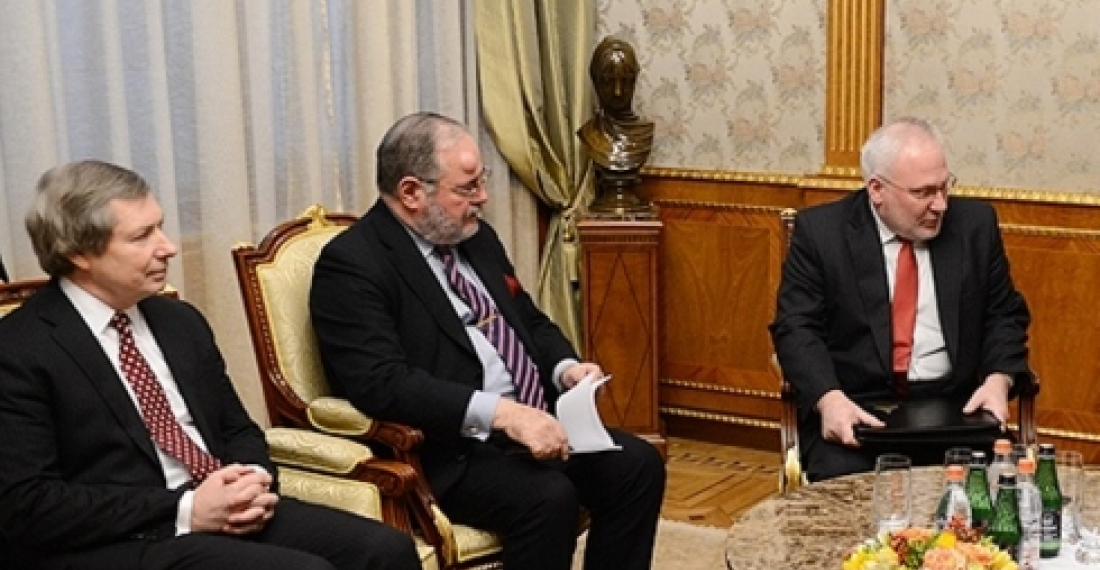The co-Chair of the OSCE Minsk Process mandated by the international community to help resolve the Nagorno-Karabakh conflict are back in the South Caucasus. This time they started their trip with a visit to the conflict zone. The diplomats from France, Russia and the United States, accompanied by the Personal Representative of the Swiss Chairmanship of the OSCE, were greeted by "spontaneous" protests by the Karabakh Armenians when they visited the region of Kashatag. Reports say that the residents of Kashtag bloacked the road, forcing the co-chair to go down from their cars and speak to the residents.
According to the Armenian web portal news.am when the international diplomats approached Kashatag "local youth blocked the road with posters saying 'We are owners of our land', 'Respect our rights', 'No to international soldiers in Artsakh'. The mediators stopped for several minutes and talked to the protesters. Then they headed to the local administration where they met with Kashatag region head Suren Khachatryan."
Commonspace.eu political editor said in a comment:
The Minsk Group co-Chair are trying hard to keep a focus on the Karabakh conflict and ways to resolve it. Their travel in the conflict region is highly commendable since it helps remind the international community of the situation on the ground and the daily suffering of people who live in the conflict region. However it is regrettable that the leadership of the Karabakh Armenians had to resort to "spontaneous" demonstrations to make their views known. The incident in Kashatag was small and lasted only a few minutes according to media reports. However it has all the hallmarks of a staged action. It raises the spectre of what may unfold in the course of implementing any future peace agreement - even if this for the moment looks very far away. The international community would therefore be best served by expressing zero tolerance to such incidents. The Co-Chair, and the rest of the international community should make sure that they listen to the people affected by the Karabakh conflict on every occasion possible and meetings for this purpose should be factored into all visits of the co-chair in the region. However blocking the road through which the co-Chair are to pass should not be the way forward. This incident in Kashatag should be condemned - not because it was serious in itself. It clearly was not and the co-Chair were never in any danger. But it should be condemned to make sure that more serious similar incidents on both sides of the conflict divide will not happen again."
source: commonspace.eu with reporting from news.am.







